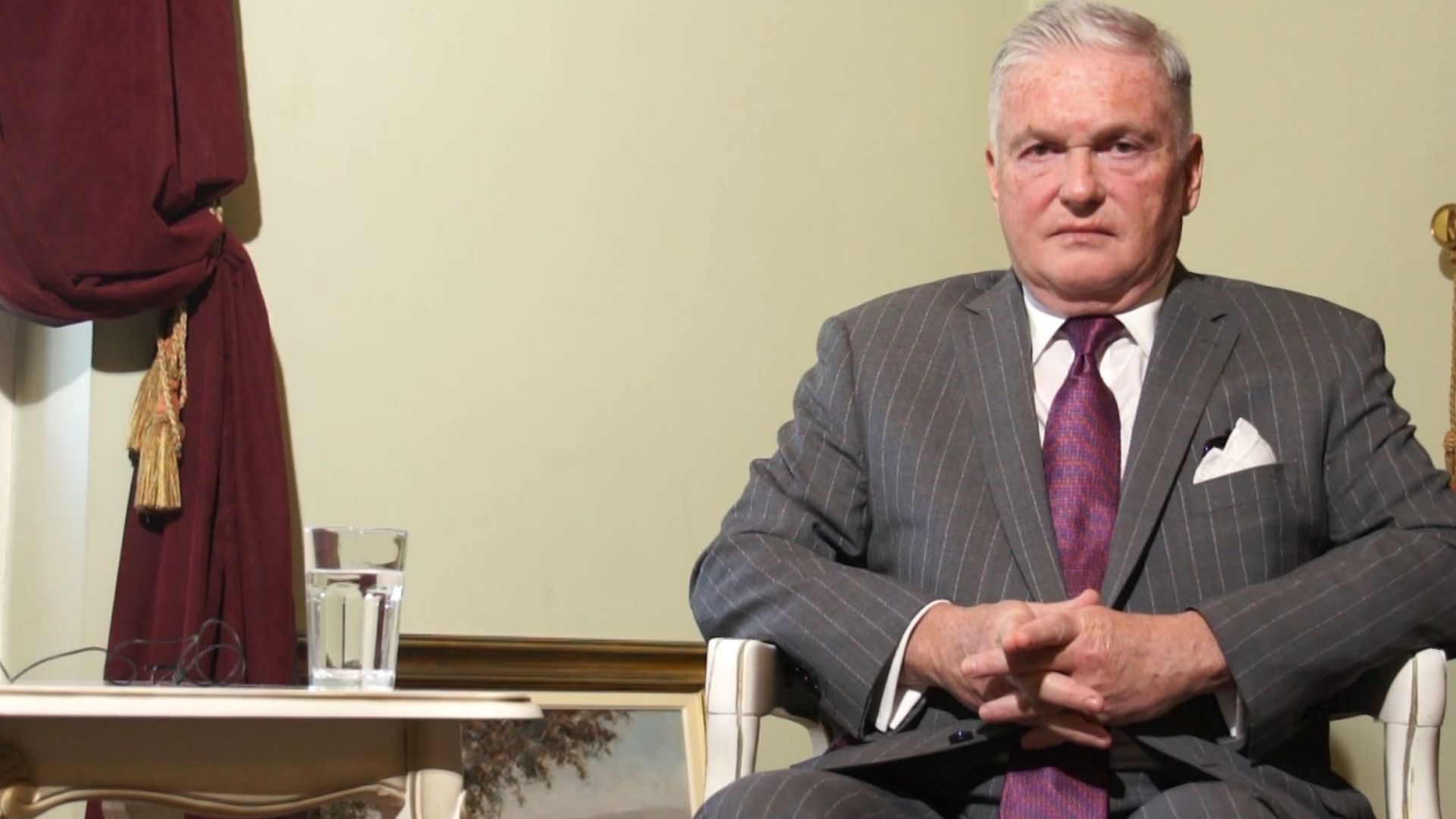 Statele Unite au cîştigat Războiul Rece pentru că Ronald Reagan a înţeles că dictatorii sînt nişte laşi cu gura mare, şi a ştiut cum să îi abordeze.
Statele Unite au cîştigat Războiul Rece pentru că Ronald Reagan a înţeles că dictatorii sînt nişte laşi cu gura mare, şi a ştiut cum să îi abordeze.
În 1978, m-am despărţit de comunism, eram conducătorul casei prezidenţiale a lui Ceauşescu. La scurt timp am scris manuscrisul Orizonturi Roşii, în care descriam viaţa la curtea celui ce reprezenta chintesenţa dictatorului comunist. Mi-a fost greu să găsesc pe cineva dispus să o publice. Nici nu este de mirare – cei mai mulţi dictatori ştiu cum să se înfăţişeze într-o lumină favorabilă. Ceauşescu tocmai îşi încheiase, încununat de succes, turul regal în jurul lumii, sfîrşindu-l la Casa Albă. Acolo, preşedintele Carter a pus cireaşa pe tortul dictatorial, numindu-l emfatic “un mare conducător naţional şi internaţional.” Stăteam alături de el în Casa Albă şi nu mi-am putut crede urechilor. Trei luni mai tîrziu am dezertat, dar nici o editură nu era dispusă să se atingă de descrierea mea atît de respingătoare a unui bărbat atît de faimos.
A durat ani de zile să găsesc soluţia acestei probleme. În septembrie 1985 am predat manuscrisul meu lui William Casey, Directorul Central Intelligence. Într-o scrisoare datată 17 decembrie 1985, DCI Casey mi-a răspuns: “Preşedintele l-a citit şi a fost impresionat.” Preşedintele era Ronald Reagan, care a numit manuscrisul “Biblia mea în relaţiile cu dictatorii.” Al Regnery, un admirator al lui Reagan, a publicat manuscrisul. În ziua de Crăciun a anului 1989, Ceauşescu a fost executat de proprii oameni, la finalul unui proces în care majoritatea acuzaţiilor au venit din cartea mea, care a fost citită în serial la Radio Europa Liberă.
În 1986, bunul meu prieten, Michael Ledeen, în acea vreme consilier pe probleme de antiterorism în cadrul administraţiei Reagan, mi-a spus că preşedintele era sătul de dictatorul Libian, Gaddafi. Reagan avea dovezi că acesta era în spatele exploziei de la discoteca La Belle din Berlinul de Vest, un loc frecventat de soldaţii americani, explozie în care au fost ucişi doi soldaţi şi 200 de persoane au fost rănite. Reagan m-a rugat să îi dau o descriere rapidă a corturilor lui Gaddafi, corturi în care l-am întîlnit pe dictator de multe ori. Ledeen a primit răspunsul meu. Avioane de război americane au atacat oraşele libiene Tripoli şi Benghazi pe 15 aprilie 1986, distrugînd cu această ocazie reşedinţa conducătorului libian Gaddafi şi ucigîndu-i fiica adoptivă. Conform rapoartelor din media, Gaddafi ieşise din cort cu cîteva minute înaintea atacului american. A trecut mult timp pînă cînd Gaddafi şi-a mai arătat faţa în public.
via Madame Blogary













![marius-bostan-foto[1] marius-bostan-foto[1]](https://inliniedreapta.net/wp-content/uploads/elementor/thumbs/marius-bostan-foto1-qt9ywoo2b2lgv37b76h9qr5yo6db5vwzoxbuvd4e6o.jpg)












4 Comments
blunthead
7 February 2011“În 1987, m-am despărţit de comunism[…]” – 1978 ?
“Conform rapoartelor din media, Gaddafi ieşise din cort cu cîteva minute înaintea atacului american” – pentru ca sunt si stangeii buni la ceva
Costin A.
7 February 201187? 78! corectat!
dr pepper
7 February 2011U.S.-Egypt Relations Under Attack
By Ion Mihai Pacepa
dr pepper
7 February 2011apropos de ce zice pacepa, am citit acum cateva zile articolul asta: Eleanor Clift Schooled On Egypt By Entire McLaughlin Group
se pare ca america a pierdut nu unul dintre cei mai mari aliati din orientul mijlociu – ci pe toti.
cei care urasc america continua sa o urasca iar aliatii nu mai au nici cea mai mica incredere in america.
intre timp, economia se tot duce in jos dar nimeni nu asculta vocile oamenilor de afaceri ce nu mai fac fata regulilor impuse de EPA.
Republicans out front of Obama on regulations
personal, eu nu cred ca se va renunta la politicile economice socialiste centralizate ceea ce va duce la un blocaj economic.